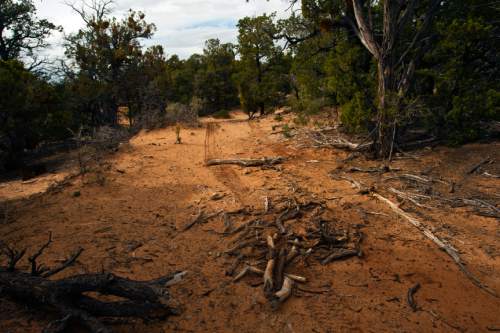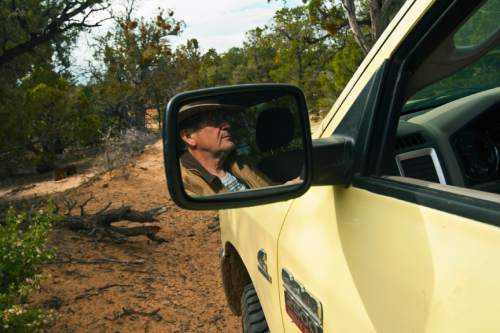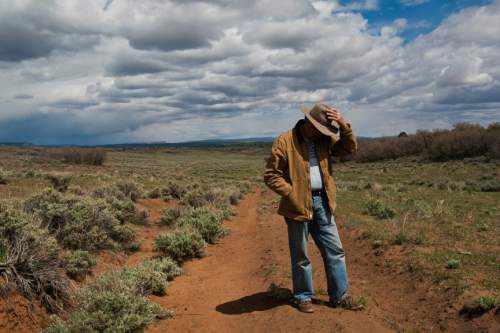This is an archived article that was published on sltrib.com in 2016, and information in the article may be outdated. It is provided only for personal research purposes and may not be reprinted.
Against the background of increasing tensions over public lands, the Utah Supreme Court is weighing the state's push to claim the right to use about 12,000 rural roads that run over federal land.
Utah is suing the federal government to guarantee access to the roads that run though large swathes of the state. Environmental groups are pushing back, saying the state is trying to claim every faint track in the desert as a local right of way.
The court fight ties into the battle for control over public lands that account for a majority of the West. Tensions have grown increasingly heated in recent years with armed standoffs in Nevada and Oregon. While leaders in Utah shun those tactics, state lawmakers say the state can do a better job managing the land and have pushed for a legal way to take control of the 30 million acres of federal land that makes up more than half the state.
The case that came before the Utah Supreme Court on Monday deals with a series of nearly two dozen lawsuits filed by the state before the public lands debate began making national headlines. The legal arguments are rooted in a Civil War-era law known as R.S. 2477 that allows states or localities to claim ownership over historic routes crossing public lands.
Congress repealed such right of ways in 1976, but it recognized those roads that were established on lands before national forests were formed or the land was placed into a federal reserve.
State attorneys say they are pressing the issue to make sure that the federal government doesn't close the roads to locals.
"They're important for ranchers. They're important for farmers. They're important for sportsmen. They're important for wilderness enthusiasts," Assistant Utah Attorney General Anthony Rampton said.
Conservationists, though, say the push amounts to a land grab. Steve Bloch, legal director at the Southern Utah Wilderness Alliance, said that if the state gets control of the roads, officials could claim a wide berth along the paths through some iconic parts of the state.
"When you think about those kinds of world-class, red-rock landscapes and what the state is trying to grab with their lawsuit, it's really significant and it would be incredibly damaging to those places," he said.
The state says that if it wins the lawsuit, it wouldn't change the existing character of the roads.
Attorneys for Southern Utah Wilderness Alliance argued before the Utah Supreme Court that the state's move to stake their claim came decades too late. They say the lawsuits should have been filed within seven years after the repeal in 1976. State lawyers contend they filed in plenty of time about five years ago because the legal deadline is actually a 12-year window triggered by an event worth suing over.
It isn't clear when the Utah Supreme Court will rule in the case. If the justices side with the environmentalists and the federal government, Bloch said it could put an end the state's effort to lay claim to the right of way. Rampton disagreed with that assessment, saying there would still be questions to work out.
If the high court rules in the state's favor, the lawsuits filed by the state would continue to play out in federal court.







